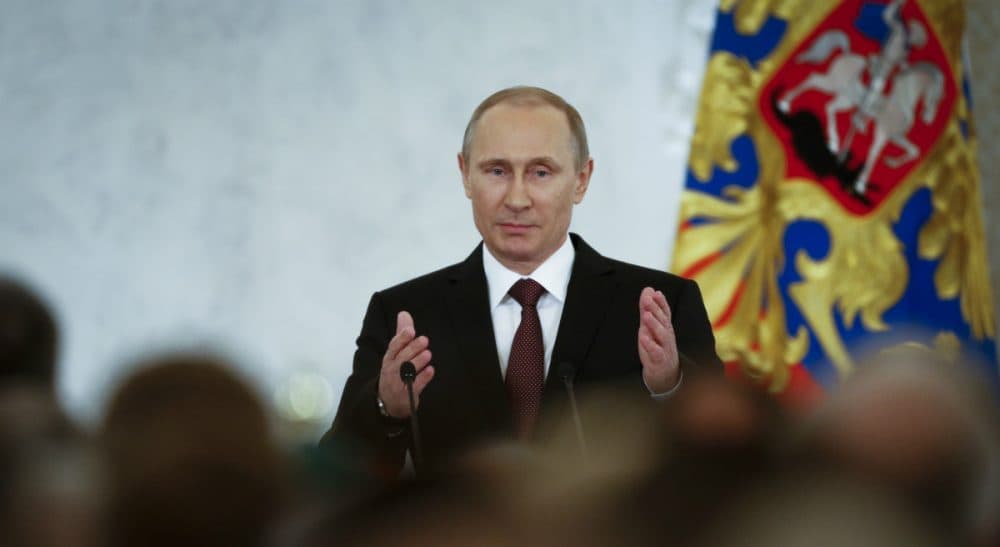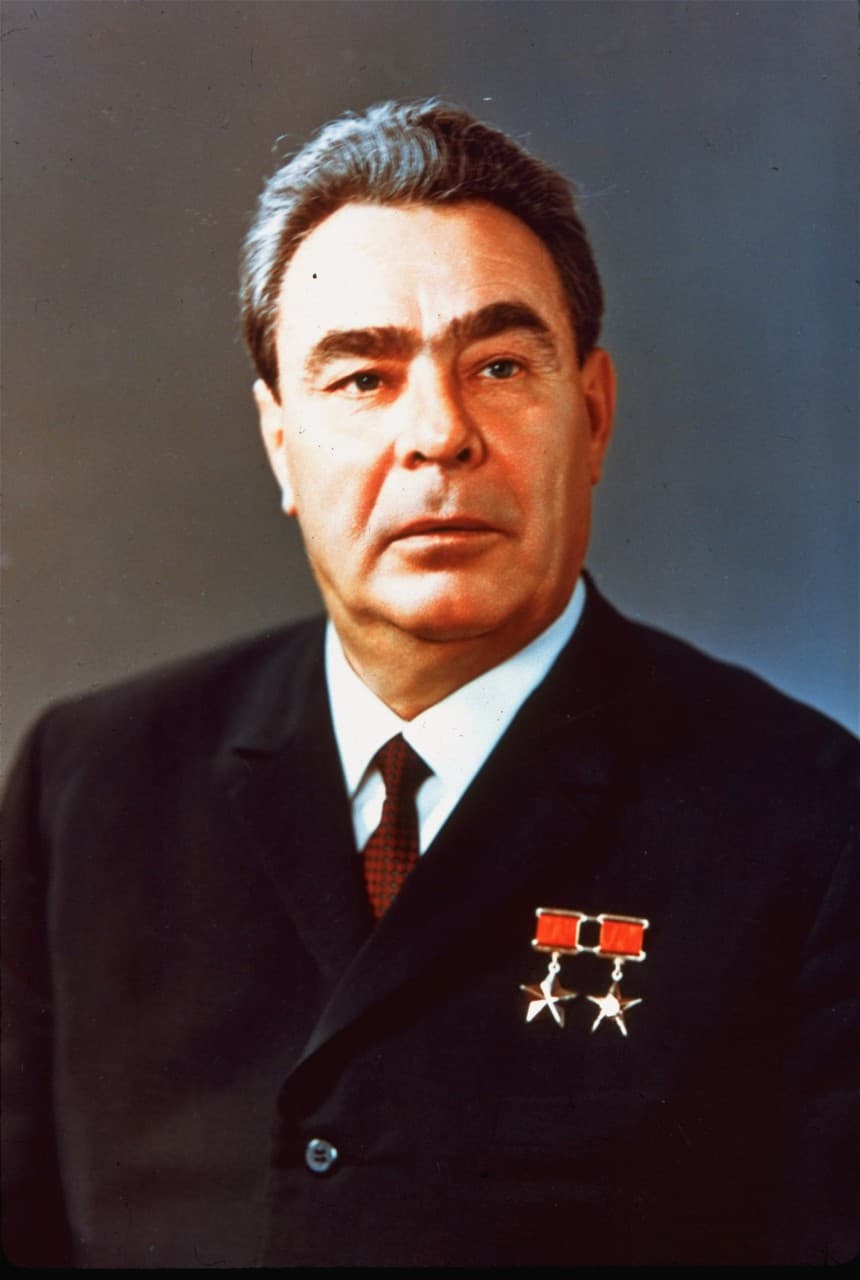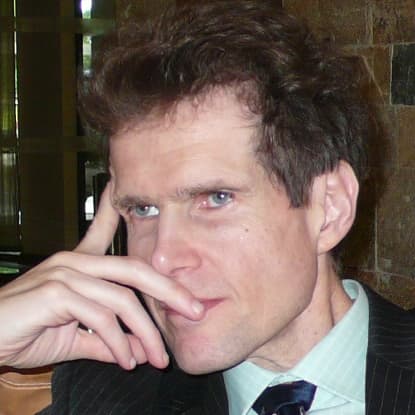Advertisement
Russia's Regression

The great writer William Faulkner famously remarked in his Nobel acceptance speech that “the past is never dead. It’s not even past.” That is precisely the way I have felt as I have watched Vladimir Putin in recent weeks dragging Russia back to the Soviet past. The reversion to that earlier era is reflected not only in the policies he has adopted vis-à-vis Ukraine and Crimea, but also in the entrenchment of increasingly repressive policies at home, curtailing even further the leeway for political rights and opposition. Unfortunately, in the Western media, Putin’s clampdown at home has often gone largely unnoticed, overshadowed by events in Ukraine and the crisis over Crimea.
In his 2005 annual address to the Russian parliament Putin proclaimed that “the collapse of the Soviet Union was the greatest geopolitical catastrophe of the [20th] century.” Now he seems to want to undo that “catastrophe,” abroad and at home. In his address to the parliament last week — a remarkable throwback to the Soviet era — Putin argued that Russia has not only a right but a duty to take preemptive military action on behalf of ethnic Russians in neighboring countries. He told the parliament: “if the local self-defense forces [actually Russian troops disguised as 'self-defense forces'] had not brought the situation under control, there would have been bloodshed. Thank God this did not happen!”
The reversion to that earlier era is reflected not only in the policies [Putin] has adopted vis-à-vis Ukraine and Crimea, but also in the entrenchment of increasingly repressive policies at home...
Upon reading this, anyone familiar with Soviet history will recall the so-called Brezhnev Doctrine, the rationalizations offered after Soviet and Warsaw Pact troops marched into Czechoslovakia in August 1968 to crush a peaceful reform movement. The Brezhnev Doctrine set forth a preemptive option, but instead of coming to the aid of ethnic compatriots (as in the Putin Doctrine) the Brezhnev Doctrine provided aid to fellow Communists. The doctrine affirmed that Soviet military forces would not wait for an event to occur — as in October 1956 when they intervened only after a revolution had broken out in Hungary — and would instead be sent in advance to head off undesired change. Leaders in Moscow vowed that the Soviet Union would never again risk “waiting until Communists are being shot and hanged,” as in Hungary in the autumn of 1956, before Soviet troops would be sent to “aid the champions of socialism.”
The implication was that by quelling peaceful change in Czechoslovakia, Soviet troops had preemptively saved the lives of orthodox Czechoslovak Communists who might eventually have been lynched in the streets. There was, of course, not the slightest probability that such reprisals actually would have happened, but no one in the Kremlin back then was shy about fabricating things. Nor was Putin shy about it last Tuesday when he enunciated his own doctrine of preemptive intervention on behalf of Russian communities in neighboring countries.
Some other reverberations of the Soviet era in Putin’s speech were even more chilling. By all indications, Putin is aware of the serious economic problems Russia is facing and is apparently concerned that these might give rise to mass unrest in Russia. In his speech earlier this week he tried to pin the blame for these difficulties on “the actions of some sort of fifth column of ‘national traitors’” who supposedly are being instigated by the West. Even during the Brezhnev era, phrases such as a "fifth column" were rarely invoked. These sorts of terms are much more reminiscent of Stalin and the Great Terror. Putin is not Stalin, but the very fact that he relies on such language is deeply worrying. It reinforces the efforts he has made over the past two years — through “foreign agent” laws, crackdowns on NGOs that receive foreign funding, restrictions on foreign bank accounts and investments, expanded definitions of “treason,” campaigns against gay rights activists (who are depicted as “Western agents”), and increasingly xenophobic rhetoric — to depict all his political opponents as mere lackeys of the West. This is precisely what the Soviet regime did with its severe repression of the human rights movement, whose activists were portrayed as “traitors.”
Advertisement

Putin asserted that the “referendum” held in Crimea on March 16th under military occupation — a referendum whose questions predetermined the results — “was carried out in complete accordance with democratic procedures and international legal norms.” Evidently, Putin is so accustomed to staging farcical elections in Russia — elections with results that are known in advance — that he no longer thinks he needs to convince the Russian public that a manifestly unfree and unfair referendum was not a travesty.
Perhaps what is most depressing of all is that Putin may be right in his estimation of the Russian public. The Levada Center’s latest opinion polls indicate that Putin’s popularity rating has surged over the past month, reaching 72 percent, some 10 points higher than a year ago. Some of the increase is attributable to the Sochi Olympics, but much of it stems from Putin’s policies on Ukraine. The polls also indicate that more than 80 percent of Russians support Putin’s annexation of Crimea. Putin’s reversion to Soviet-style practices and rhetoric both abroad and at home has provoked alarm in the West, but in Russia he has emerged triumphant, wiping out memories of the protests in late 2011 and early 2012 that tarnished his return to the presidency.
Related:
